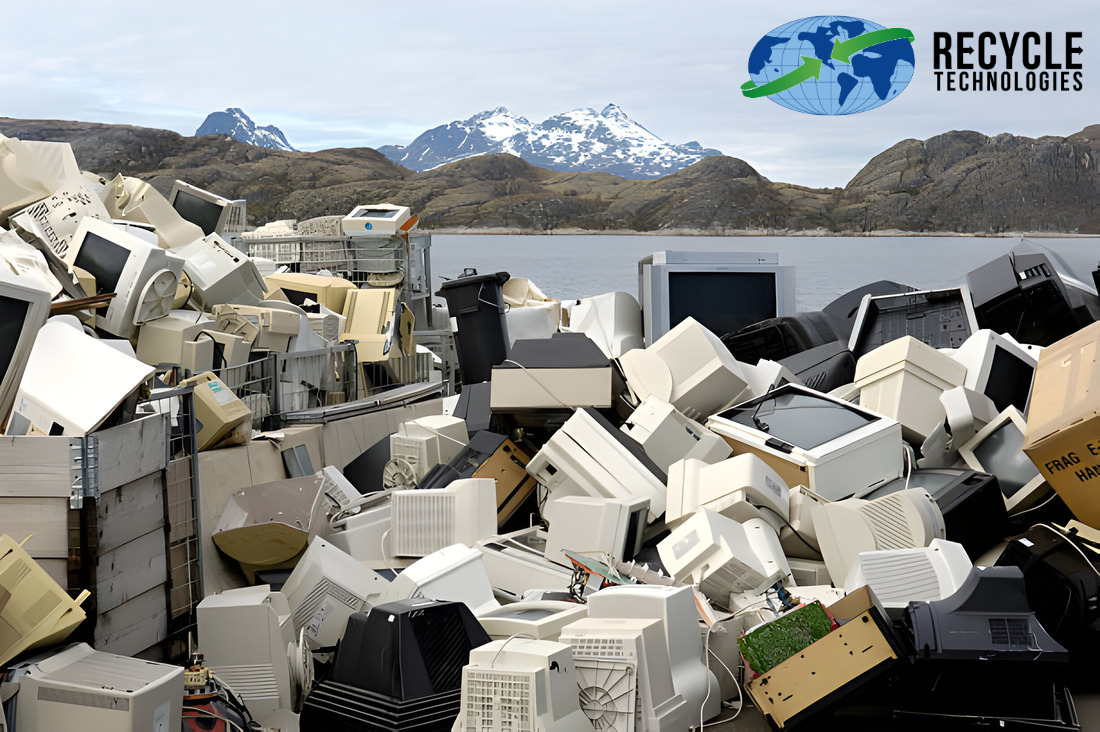We have all seen old television sets at our grandparents' houses. Even though flat screens have since replaced those gigantic TV screens, they have become more than junk sitting in an attic or basement. Television recycling is a perfect solution to getting rid of old TVs.
At Recycle Technologies, our trained staff is expert in recycling televisions and disposing of electronics waste. We often get questions about television recycling and aim to answer some of them in this blog.
Understanding Television Recycling
Before delving into the recycling process, they are understanding how televisions function is crucial. The cathode ray tube (CRT) television is an obsolete technology. They dominated television for decades until thinner, more efficient flat-screen devices emerged.
TVs might have been the sensation of the century back then, but now we know what medical risks they carried. Electromagnetic and low radiation fields caused by the bombardment of electrons on a phosphor sheet are hazardous for humans. More about the dangers of televisions are below.
Why Are Televisions Hazardous? Why is Television Recycling Mandatory?
According to research, cathode ray tubes (CRTs) contain toxic substances such as lead, cadmium, and mercury. The presence of toxins makes the removal even more of a chore, resulting in higher costs of television recycling. However, CRT glass recycled or exported for recycling is not considered solid or hazardous waste under RCRA (EPA regulations).
Television Recycling Methods
Some companies in the US also encourage people to drop off the appliances at one of their disposal centres.
We offer our customers a drop-off facility where they can dispose of their television without any issues.
Our Television Recycling process is Why so Many Customers Prefer Us:
- Television Recycling: The cathode ray tube is the first component recycled from a television set.
- Separation and Collection: Nearly all parts of TVs are separated by hand and collected in different sections for separate recycling
- Handling glass tubes: Broken glass tubes hold no value, so we take great care while separating the glass tubes of televisions.
- Shredding and Sorting: Once the TV has been removed, the remaining components are shredded, and the metals, plastics, and other materials are sorted. They are marketable as raw materials for further production.
- Treating Clear Glass: The lead glass in the cathode must be taken off the clear glass. Clear glass is of excellent quality and is recycled and polished into many other products, including cars, fibreglass, lights, and beads.
- Treating Leaded Glass: The last step is to heat the leaded glass until the lead is gone. The extracted information is then traded on commodity markets.
Television Recycling Challenges
There are some obstacles inherent to television recycling. Compared to newer models, televisions are made with toxic chemicals like lead and mercury that can harm the environment if disposed of improperly. Because of this, recycling them is a delicate operation that calls for specialized equipment and methods.
Recycling television from the last century is expensive, owing to the lengthy recycling process. Because of the glass tubes, such appliances cannot be shredded like other appliances.
Older Televisions are difficult to recycle since they have little commercial value. CRTs, for instance, have lead glass in them. This results in older TVs sets being sent to less developed nations rather than recycled.
Also Read: How to dispose of Broken Tv
Conclusion
Television recycling is essential for protecting the planet's natural resources. At Recycle Technologies, we ensure that old TVs are recycled securely and efficiently using modern renewal techniques.
We can make a difference by adopting environmentally sound methods of disposing of our electronic waste. As recyclers, we aim towards a more environmentally friendly and sustainable world for future generations.
To book television recycling at our recycling facility in Minnesota or Wisconsin, please complete the form or call MN: (800) 969-5166, WI: (800) 305-3040. We provide free, no-obligation quotes to customers. We need basic information about your recycling needs.












